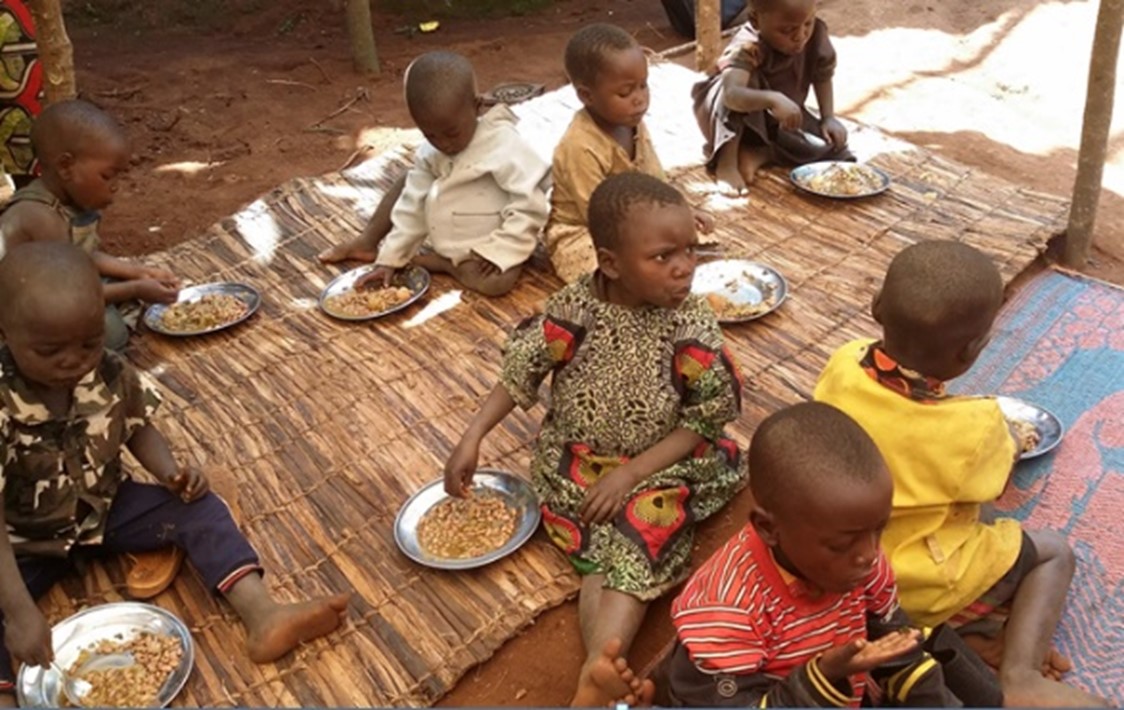by Nepomuscene Ntukamazina, Eric Nduwarugira, Patricia Onyango, Jean Claude Rubyogo
Malnutrition is a public health concern in Burundi, with the highest level of hunger among all 76 countries in the 2014 Global Hunger Index. Forty-nine percent of children under five in Burundi suffer from chronic malnutrition, with severe levels of anaemia (56%), vitamin A deficiency (28%), and high zinc deficiency resulting in the poor health status of women and children. In Muyinga Province, 61.1% of children under five are stunted, and 32.1% are underweight.
To tackle this challenge, the Institut des Sciences Agronomiques du Burundi (ISABU) and the Alliance of Biodiversity International and CIAT with support from the Global Affairs Canada (GAC) and Swiss Agency for Development and Corporation (SDC) engaged the Ministry of Health Programme National Intégré pour l’Alimentation et la Nutrition (PRONIANUT) and worked with the World Vision International, to support the crèche programme by introducing High Iron Beans into crèches. World Vision in Burundi found the idea novel and launched: “Bio-fortified Value Chains for Improved Maternal and Child Nutrition (B4MCN),” project aimed to enhance food security and nutrition, especially among children under five and breastfeeding mothers.
With the continuous support from GAC & SDC, ISABU in partnership with the Alliance promoted the two High Iron Bean (HIB) varieties (MAC44 and RWR 2245) which were used to improve the children and households’ nutrition. In addition, ISABU and the Alliance supported farmers in the surrounding area, including households with children in the crèches, to increase their common bean production for sale and for food, and to supply to the crèches to provide more nutritious meals such as bean porridge.
The biofortified beans are produced from certified, quality seed supplied by ISABU, bought from farmers like Uwimfura Parfait, Nayabagabo Nestor, and Marrietta Ntirabampa in Muyinga province. More women farmers were provided with HIBs to produce bio-fortified beans and to plant vegetable seeds to produce ingredients they learned about through cooking demonstrations. At the same time, the women have formed groups to promote communal childcare in the crèches to free up time to tend their farms and improve their businesses.
While the approach started in 2016 with one crèche, in 2020, more than 60 crèches with about 1,200 children have been reached through this collaboration, including additional activities such as educating the children on basic skills to prepare them for formal school. Nsengiyumva Nadine, a mother of two children, said: “This program has really benefitted us mothers and the children. We have 20 children being taken care of by five mothers at one time. The other mothers can go back to do other chores either at home or in the business. It gives us peace of mind knowing the safety of the children is guaranteed.” In her extra time when she is not at the crèches, Nadine has a small business selling clothes.
“Now, everyone in the colline knows which kind of food is important for the family and especially the children,” Nadine added. A balanced diet is very important. We have also learned different ways of making bean meals better.’’ World Vision has now contracted TOTAHARA Ltd, a woman-owned enterprise processing composite bean flour, to supply 4.9 metric every month to the crèches. Each crèche gets 4 kilograms of TOTAHARA bean flour per day, with around 240 kilograms of the TOTAHARA flour consumed in the 60 crèches per day.

